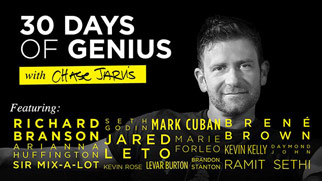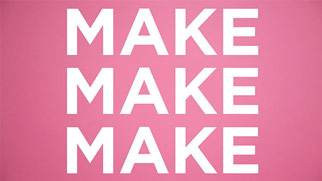Ever find yourself chasing after more, only to feel emptier than before? It’s a paradox many of us live: the more we strive for, the less satisfied we become. When does what you do and what you have become enough? It’s a question we rarely ask ourselves. Our society pushes the myth that having more—more money, more stuff, more accolades—is the ultimate path to happiness and success. But here’s the thing: it’s a myth, and like all myths, it’s worth challenging.
The Illusion of More
We’re bombarded daily with messages that glorify the hustle and celebrate accumulation. Social media feeds us a never-ending stream of highlight reels, making it seem like everyone else has it all. This constant chase for more often leads to a sense of emptiness rather than fulfillment.
The Problem with Always Wanting More
Our desire for more is deeply ingrained in our culture. We’re never satisfied and always want more—more money, more clothes, more toys, more square feet, more followers. This insatiable pursuit creates a cycle of never-ending wants and desires. No matter how much we accumulate or achieve, there is always something more to strive for, making true contentment elusive.
Our natural state is one of dissatisfaction, punctuated by brief moments of satisfaction. Evolutionary instincts drive us to constantly seek better mates, more resources, and higher status for survival. While these instincts are beneficial for survival, they are detrimental to our long-term happiness. Constant comparison to others and the relentless pursuit of more lead to self-objectification, anxiety, and depression.
Differentiating Between Being Driven and Never Being Satisfied
It’s important to distinguish between being driven and never being satisfied. Being driven means having goals and ambitions that motivate us to improve and achieve. It is a positive force that can lead to personal growth and fulfillment. On the other hand, never being satisfied means that no matter what we achieve, it is never enough. This mindset leads to perpetual dissatisfaction and unhappiness.
Sonja Lyubomirsky, a leading researcher in positive psychology, explains that our assumptions about what will make us happy are often wrong. Events like getting married, striking it rich, or moving to a desired city do make us happy, but not as much or for as long as we expect. This phenomenon, known as hedonic adaptation, means that we quickly get used to new circumstances and start taking them for granted, leading to a constant need for more.
5 Simple Ways to Break the Cycle
So, how do we disrupt this relentless feeling that we need more? Here are some simple actions you can take to find your “enough” and embrace a more fulfilling life.
The “Enough” List
Write down what is enough for you in different areas of your life—enough money, enough possessions, enough success. This helps you define your limits and recognize when you’ve reached them.
The Reverse Bucket List
Make a list of things you’ve already accomplished. Reflecting on your achievements can help you appreciate how far you’ve come and reduce the urge to constantly seek more.
The Digital Detox
Take a break from social media and other digital distractions. Reconnect with your own values and reduce the influence of external comparisons.
The “Less is More” Challenge
Live with less for a period of time. Declutter your home, reduce your wardrobe, or limit your spending. Experience firsthand how less can lead to more satisfaction and contentment.
The “Why” Exercise
When you find yourself wanting more, ask yourself “why” five times. This exercise helps you understand the underlying motivations and whether they truly align with your values.
Embracing the Power of Less
By challenging the myth of more, we open ourselves to the possibility of a more fulfilling and balanced life. The journey to finding your “enough” point is deeply personal, but it’s one that can lead to greater happiness and contentment. Here are a few final thoughts to guide you:
- Value Quality Over Quantity: Focus on the quality of your experiences and relationships rather than the quantity of your possessions.
- Be Present: Embrace mindfulness and the present moment. Appreciate what you have now instead of constantly longing for what’s next.
- Practice Gratitude: Regularly acknowledge and appreciate the blessings in your life. Gratitude can shift your focus from what’s lacking to what’s abundant.
In the end, the key to true success and happiness lies not in the endless pursuit of more but in recognizing and appreciating the enough in our lives. So, what’s your enough point? Take the time to find it, embrace it, and let it guide you to a life of genuine fulfillment and joy.
Remember, it’s not about having more. It’s about being more of who you are and savoring what you already have.
























